Iranian Regime Executes Kurdish Political Prisoner In Sanandaj
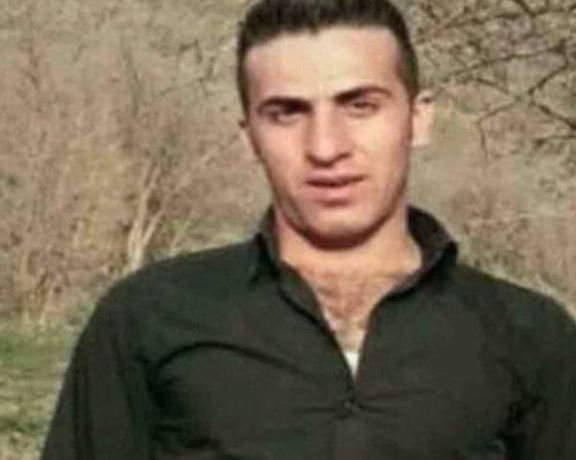
A Kurdish political prisoner was executed on Wednesday morning in Sanandaj Central Prison of Iran’s Kordestan Province.

A Kurdish political prisoner was executed on Wednesday morning in Sanandaj Central Prison of Iran’s Kordestan Province.
The judiciary of the Islamic Republic is yet to respond about the reports of the execution of Hayman Mostafaei published by Hengaw human rights organization and the Free Union of Iranian Workers.
Reports on social media say a rally was also held in front of prison on Tuesday night to prevent the execution of the 34-year-old political prisoner.
“The people of Sanandaj and a large crowd coming from Marivan gathered in front of the prison and did their best until the last moment to save Mustafaei’s life, but they took the life of another person,” wrote the Free Union of Iranian Workers.
Mustafaei was accused of killing an IRGC member in 2012 and sentenced to death after being tortured to obtain a forced confession.
In recent months, the Islamic Republic has expedited the execution process of imprisoned citizens.
Many of the people executed in recent months were accused of killing security forces, however, the Islamic Republic has never opened any case to investigate the killing of protesters by security forces.
UN High Commissioner for Human Rights, Volker Türk expressed concern over the increase in executions in Iran on Monday, saying " I am concerned by the massive recent increase in executions, as well as continuing discrimination against women and girls."
“Iran continues to engage formally with my office, including on issues pertaining to discrimination against women and girls; accountability for severe human rights violations; and imminent executions,” added Türk.
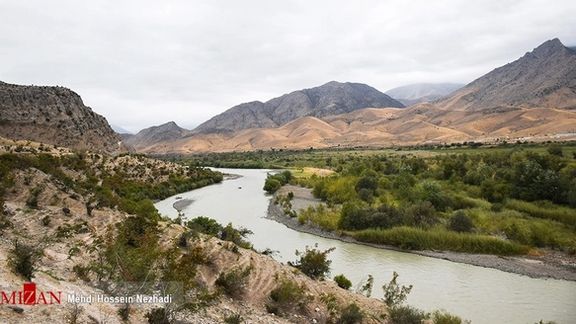
Media reports about possible radioactive contamination of Aras River in Iran’s northwestern borders by Armenia’s nuclear power plant has led to widespread concerns.
However, Iran's Nuclear Safety Center has refuted the reports. In a statement on Tuesday, the center which is an affiliate of Atomic Energy Organization of Iran (AEOI) said the river Aras is monitored at least once a year for radioactive pollution and that the last survey in March this year did not indicate any radioactive pollution as claimed by Payam-e Ma newspaper on Monday.
Quoting a paper published earlier by the Border Studies Research Journal of the Iranian police, Payam-e Ma on Monday suggested that the extremely high occurrence of various types of cancers and liver diseases in Ardabil Province bordering the Republic of Azerbaijan, could be attributed to radioactive pollution of the Aras River emanating from Armenia’s nuclear power plant situated in Metsamor hundreds of kilometers to the west.
Payam-e Ma’s article followed a warning on June 12 by Mahmoud Abbaszadeh-Meshkini, a member of the Iranian Parliament’s National Security and Foreign Policy Committee who claimed that effluent from the power plant which was polluting the river could be the cause of the high occurrence of cancer in Iran’s Ardabil.
However, the cause of the high rate of cancer in the area is hard to establish. It is not clear whether the phenomenon is related to the environment or has other underlying reasons. But concerns linger on as many do not trust the Iranian government on the issue of radioactive contamination.
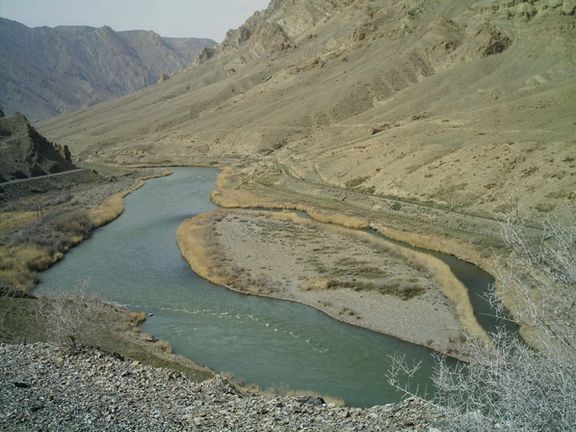
A deputy health minister, Dr. Reza Malekzadeh, told the media in October 2020 that a longitudinal study carried out over a period of 20 years about the occurrence of stomach cancer in Ardabil Province has shown a rate of 50 per 100,000 of the province’s population. This is the highest rate in the country.
However, the Nuclear Safety Center’s statement said the Armenian power plant is too far from the Aras for its effluent to reach the river and pollute it as claimed.
The Aras River which rises in Turkey forms part of Iran's border with its northwestern neighbors, Armenia and Azerbaijan, before flowing into the Kura River in Azerbaijan.
“The Aras River is being continually monitored for radioactivity and other required substances,” the statement said and added that the center will establish an online water monitoring station in the said area very soon to carry out tests.
In the past ten years, Iranian officials have repeatedly denied radioactive pollution of the Aras River by the Armenian nuclear plant.
Metsamor Nuclear Power Plant which is the only nuclear power plant in the South Caucasus was built in the 1970s. The two units of the plant provide a total of 815 MW of electricity and supplied approximately 40 percent of Armenia’s electricity in 2015.
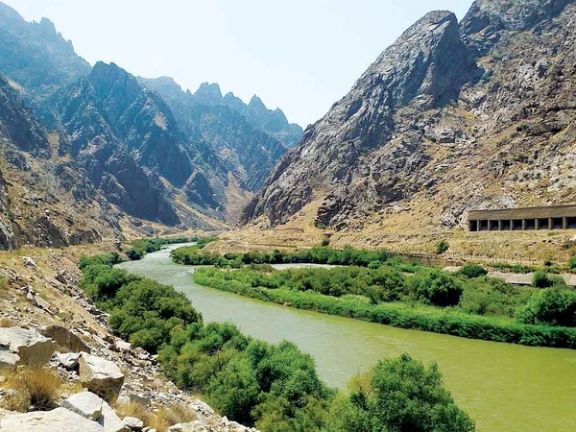
The plant has been a source of environmental concern since the Spitak Earthquake in 1988 which led to its closure until 1995. The plant has been classified by the EU as the oldest and least reliable of all the 66 reactors built by the former Soviet Union.
The International Atomic Energy Agency (IAEA), however, said in 2011 that the plant posed an “acceptable” level of risk to the environment and could “in principle” operate beyond its design life span.
The media have also warned that heavy metals in the effluent of other industries in Armenia, Turkey and Iran have been polluting the river for many years. Most of the pollution, however, is apparently caused by Armenian copper mines and plants in the area.
Firuz Ghasemzadeh, spokesman of the Iranian Water Industry, told the Iranian Labour News Agency (ILNA) on May 10 that the Iranian ministry of energy and both Iran’s and Armenia’s departments of environment had been investigating the pollution caused by the Armenian mines.
According to Ghasemzadeh, sources of pollution were eliminated by installation of water treatment facilities, but occasional pollution was still possible. He also stressed that Armenia has given assurances that it would control the sources of pollution.
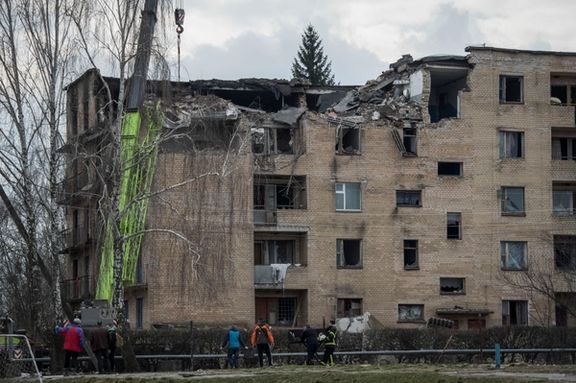
An aide close to the Ukrainian president expressed frustration over Israel's refusal to provide military support.
Andriy Yermak said on Tuesday he was hoping Ukraine would receive Israeli technology to counter Iranian drones used by Russia during its 16-month invasion.
“Nobody but Israel can provide equipment to combat attacks by Iranian drones,” said Yermak, Zelensky’s chief of staff.
He further expressed frustration that Prime Minister Benjamin Netanyahu has not publicly supported Ukraine and suggested that Israel join the war if Russia and Iran made weapons deals.
“We can see the Kremlin dictator [Russian President Vladimir Putin] taking family photos with Iranian leaders and then this Iranian weaponry is being used against us and against you,” Yermak addressed the Israeli reporters from the Office of the Ukrainian President.
After Russia invaded Ukraine in February 2022, Israel expressed moral and humanitarian solidarity with the embattled country but refused to provide weapons, retaining a neutral stance between the two sides, primarily to ensure the safeguarding of the Jewish populations on both sides.
Forces of the Russian Federation began using Iran-made kamikaze drones in their attacks against Ukraine's infrastructure last fall, temporarily depriving millions of Ukrainians of heating, water and electricity during the winter.
Iran first denied it had supplied drones to Russia but in early November foreign minister Hossein Amir-Abdollahian admitted the deliveries, while claiming they were sent before the Russian invasion.
Iran’s supply of drones to Russia for use in its war on Ukraine has been condemned by the US and its NATO allies and met with sanctions by the US, European Union and other states.
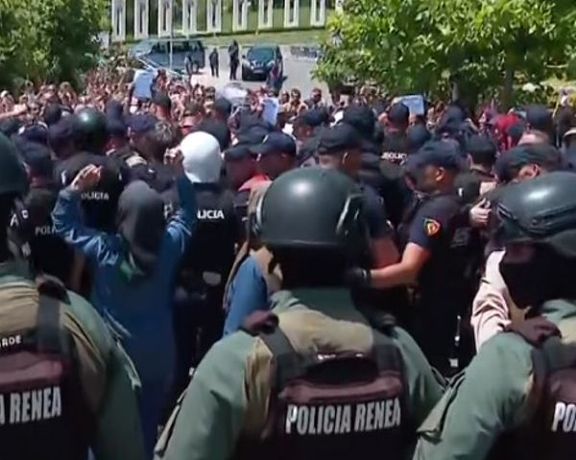
The US has copped out of condemning the Albanian police raid into Camp Ashraf, a township where members of exiled opposition group Mojahedin-e-Khalq reside.
“The Albanian State Police have assured us that all actions were conducted in accordance with applicable laws, including with regard to the protection of the rights and freedoms of all persons in Albania,” read a statement issued on Tuesday.
Having found itself in quite a precarious predicament after dozens of Iranian dissidents seeking safe haven in Albania were reportedly injured Tuesday and one allegedly died in the raid, the State Department said it has been "assured" the Albanian government did not violate any human rights.
The State Department, which usually does not keep silent about such actions, and especially not against a group known to be active against the Islamic Republic, not only did not condemn the unexpected raid, but also distanced itself from the dissident group, raising concerns about the group’s actions against its own members.
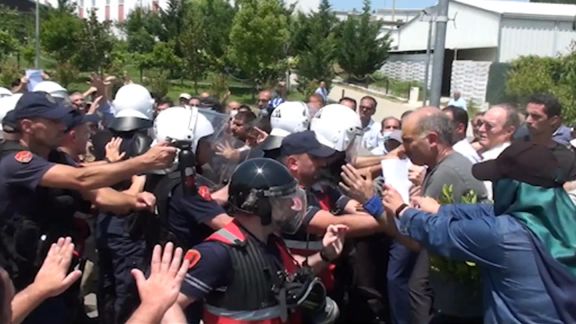
"The State Department continues to have serious concerns about the MEK as an organization, including allegations of abuse committed against its own members,” noted the statement.
The State Department, however, pointed to the Albanian police accusations that the inhabitants of the camp were involved in cyberattacks against the Albanian government, adding, “We support the Government of Albania’s right to investigate any potential illegal activities within its territory."
Emphasizing that Washington does not view the MEK as “a viable democratic opposition movement that is representative of the Iranian people,” the State Department said, “The US government does not provide support or training to the MEK, does not contribute funding to the organization, and does not maintain substantive contact beyond issues related to the MEK’s resettlement, which was completed in 2016.”
Earlier on Tuesday, MEK said about a thousand Albanian police officers raided the group's exile center, Camp Ashraf, using tear gas and pepper spray. The group said that one of their members, identified as Ali Mostashari, was killed and more than a hundred others injured.
Despite initial denials, Albanian Interior Minister Bledi Cuci and the head of the national police, Muhamet Rrumbullaku, said both police officers and Iranian dissidents were injured during the raid at the Ashraf-3 camp near Manze, a small hill-town 30 kilometers (about 20 miles) west of Albania’s capital. However, the authorities disputed that the raid caused the man’s death.
Alleging that the attack was instigated by the Iranian regime, the MEK claimed that the actions by the Albanian police are “reminiscent of the criminal attacks by forces of Nouri al-Maliki (former prime minister of Iraq) on the original Camp Ashraf in Iraq between 2009 and 2015.”
Camp Ashraf 3 compound in Durres, Albania, is MEK's first home outside the Middle East established a few years after the 2013 massacre in the original Camp in Iraq in which 52 members died and seven went missing, leading to the relocation of the group.
In September 2022, Albania severed its relations with the Islamic Republic and expelled all Iranian diplomats and embassy staff following an investigation into a large-scale cyberattack that targeted the country’s infrastructure in July. The attack happened around the time of a conference held by the MEK.
The Tuesday attack against the de facto headquarters of the MEK took place about a month after the MEK-affiliated hacktivist group Uprising till Overthrow breached into 120 servers of the Iranian presidential office, getting access to internal communications, meetings minutes, and leaking troves of confidential data.
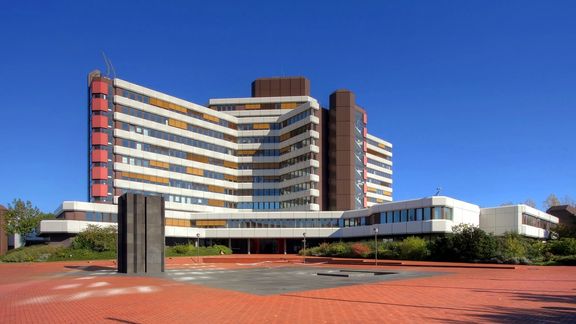
Germany’s Federal Office for the Protection of the Constitution claims the Iranian regime employs “state terrorism” to intimidate and eliminate opposition members.
It cautioned that Iranians residing in Germany could be targeted by Iranian intelligence and security services for abduction and espionage operations.
“Fighting opposition groups and individuals at home and abroad is the focus of Iranian intelligence activities,” reads the Constitutional Protection Report 2022, which has just been released.
The report further claimed that spying activities against (pro-)Israel and (pro-)Jewish targets in Germany are still part of Iran's field of espionage.
“Spying activities by Iranian intelligence services including IRGC’s Quds Force serve to prepare for state terrorist activities, including kidnapping or even killing the target.”
The report goes on to say that since 2019, Iranian intelligence services have repeatedly carried out costly, complex and professionally executed kidnappings of high-ranking targets from the opposition spectrum.
In January, an audio file shared on social media revealed that the regime threatens Iranians abroad for taking part in anti-government protests and expressing opposition.
The Daily Telegraph in December reported that the Islamic Republic uses mosques and political institutions in the United Kingdom as part of its “spying system” to target dissidents.
Canada's spy agency also launched an investigation into what it calls multiple "credible" death threats from Iran aimed at individuals in Canada.
In November, Israel’s Mossad informed Britain’s spy agency about an impending Iranian plot to carry out terrorist attacks against Iran International’s journalists based in London.
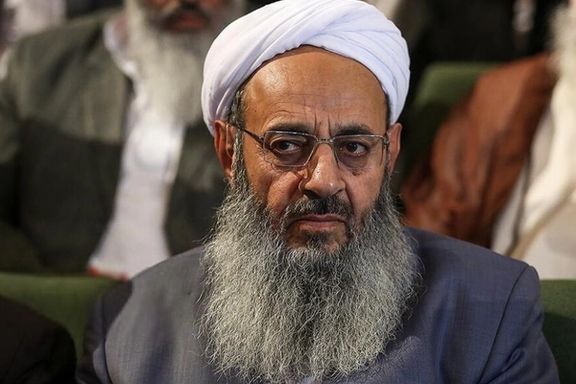
Officials at Makki seminary in Zahedan have come under pressure to deny the assassination of religious leader Mowlavi Abdolhamid.
Haalvsh website, which covers the events in Sistan-Baluchestan province, reported on Tuesday that a number of staff at Makki Mosque where Abdolhamid conducts his controversial anti-regime sermons, are now trying to play down the conspiracy to show the suspect as a spy.
“On Monday, some officials from the ministry of intelligence came to the seminary and the administrative deputy of the complex handed over the arrested person to the security officers,” the website reported.
On Monday, security guards at the mosque arrested a man in the guise of a religious student who wanted to assassinate the Sunni leader.
“The suspect, who is a Baluch and a resident of Delgan region in Sistan and Baluchistan province, has been sleeping and worshiping in the mosque for a long time in the dress of a student of religious studies,” explained the Baluch website.
The report also claimed the suspect admitted he had been attending the mosque for some time to poison Mowlavi Abdolhamid.
"This type of poison works through tactile contact and does not have an immediate effect," the hitman told Haalvsh sources.
According to the report, the suspect admitted that he received a salary of 150 million rials per week since the beginning of his operation.
In recent months, Abdolhamid has been under pressure by Iranian security to end his weekly protests and critical sermons on Fridays.